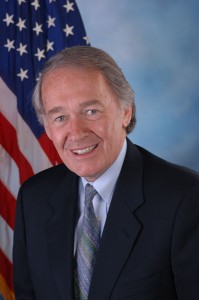A recent report from the Government Accountability Office questions whether Alaska Native Corporations share enough information with their shareholders.
The GAO report does not make any recommendations, but it is generating a lot of buzz.

Representative Ed Markey, a Massachusetts Democrat, requested the report. Senators Lisa Murkowski and Mark Begich signed on to the request as well.
Markey is a vocal liberal, serves as the top Democrat on the House Natural Resources committee, and is running for the Senate seat John Kerry would give up should he win approval as Secretary of State.
And now he says he’ll introduce legislation that would require Alaska Native Corporations to report financial statements to the Securities and Exchange Commission.
To Representative Don Young, Markey is wasting GAO’s time.
“He’s looking for an answer to a problem that doesn’t exist,” Young said. “He’s trying to take away the right of Alaska Native organizations to manage their own programs.”
The 79-page report shows that by and large, ANCs are some of the most successful businesses in the state.
The report is short on criticism, though it does point out that the state of Alaska requires some financial reporting – though oversight of that reporting is slim.
They have shareholders, but the shareholders are not considered investors like in a publicly traded company. And because of that distinction, they do not need to report financial statements to the SEC.
“Representative Markey may think that tribal members, or tribal member shareholders in Alaska, are a bunch of individuals wearing feathers and loincloths, and don’t know what’s going on,” Kevin Allis, the executive director of the Native American Contractors Association – a group that lobbies on behalf of Native businesses, said.
Allis rhetorically asks why Congressman Markey wants to single out certain types of private businesses and not others.
“I would question the usefulness for that, what the need is for that, and would that be fair,” Allis said. “Other non-publically traded companies that are not Native American are not subject to these particular laws.”
“Closed corporations that are not publicly traded, aren’t subjected to those laws.”
Congressman Markey would not comment for this story. A press release from his office says ANC’s treat shareholders as second class citizens. His legislation would protect them from financial abuses committed by the corporations.
Gary Harrison is a shareholder of CIRI and the Chickaloon Moose Creek Regional Association. He says he’s out of the loop on how his corporations operate. Harrison is the traditional chief for Chickaloon Village.
“They put out a newsletter, and if you read the newsletter, you’ll know the periphery of what’s going on,” Harrison said. “But what’s really going on they’re not going to tell you.”
Harrison worries that the large, regional corporations are losing site of the original intent of ANCSA.
“They’re starting to learn how to run these corporations,” Harrison said. “But then the people start looking at these corporations like they’re Fortune 500, and they lose the aspect that these are the people’s corporations and they’re not theirs.”
Unlike the vast majority of GAO reports, this one makes no recommendations.
But that’s because of jurisdiction: GAO has oversight of Congressional legislation and government agencies – not privately owned companies.
Listen to the full story
pgranitz (at) alaskapublic (dot) org | 202.488.1961 | About Peter




